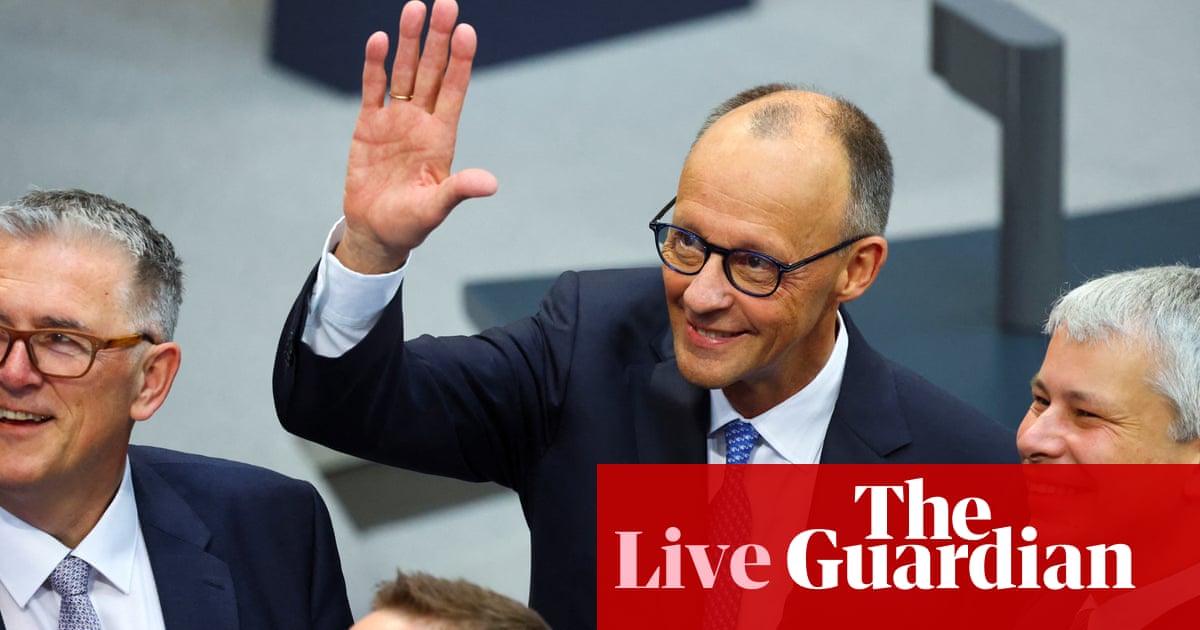If you’re wondering why, oh, why is it all taking so much time, it’s because it’s a secret ballot, with all parliamentarians going out of the main chamber to the lobby to physically cast their vote.
The meeting has just been adjourned for 20-25 minutes as they count the votes.
No prizes for guessing howMerzvoted.
If, as we expect,Merzgets elected in the first round of voting, the Bundestag session will be adjourned, and he will travel to see the country’s presidentFrank-Walter Steinmeierto get a certificate of his appointment.
He will then come back to the Bundestag to take the oath of office, and later formally confirm his ministerial appointments (both with the president and the parliament).
The formal takeover process is expected to be completed at 3pm.
But let’s not get ahead of ourselves.
The voting continues.
And after some formal words of welcome, the vote onFriedrich Merz’schancellorship is now under way.
316 votes are required, and it should be a formality given the CDU/CSU/SPD coalition has 328 MPs.
Former German chancellorAngela Merkelis there too.
Some 70 days after winning the parliamentary election in February, CDU/CSU leaderFriedrich Merzwill finally become the new German chancellor today, taking over from embattledOlaf Scholz.
Last night, Scholz was given a formal send-off party – probably bestdescribedby the Economist’s Tom Nuttall as“think military parade crossed with Desert Island Discs and you’re halfway there”– leaving the office to the sounds ofBach,Aretha Franklin’s“Respect” andthe Beatles’“In My Life.”
There will be time and place to properly sum up his term, acknowledging that whatever plans he may have had got quickly derailed byVladimir Putin’sfull-scale invasion of Ukraine, three months into his chancellorship.
But todaythe focus will be on what’s nextwith a number of extremely urgent tasks facing the new chancellor, not just in international politics or the economy, but with the broader crisis of people’s trust that things work as they should.
In his farewell speech, summing up his three years holding the highest office in the country, Scholz said:
Merz will need to figure out – and figure out fast –how to keep that democratic confidence aliveat a time when the far-rightAlternative für Deutschland, the main opposition party now formally designated as an extremist force, comes top in some of the public opinion polls.
The Bundestag will sit from 9am Berlin time (8am London) to formally appoint the new chancellor, and later to confirm the members of his government, with media rumours that the first cabinet meeting will take place this evening, ahead of Merz’s expected trips to Paris and Warsaw tomorrow.
We will bring you all the latest.
It’sTuesday, 6 May 2025, it’sJakub Krupahere, and this isEurope Live.
Good morning.
